Related Research Articles

William Shakespeare was an English playwright, poet and actor. He is widely regarded as the greatest writer in the English language and the world's pre-eminent dramatist. He is often called England's national poet and the "Bard of Avon". His extant works, including collaborations, consist of some 39 plays, 154 sonnets, three long narrative poems, and a few other verses, some of uncertain authorship. His plays have been translated into every major living language and are performed more often than those of any other playwright. Shakespeare remains arguably the most influential writer in the English language, and his works continue to be studied and reinterpreted.

A writer is a person who uses written words in different writing styles and techniques to communicate ideas. Writers produce different forms of literary art and creative writing such as novels, short stories, books, poetry, travelogues, plays, screenplays, teleplays, songs, and essays as well as other reports and news articles that may be of interest to the general public. Writers' texts are published across a wide range of media. Skilled writers who are able to use language to express ideas well, often contribute significantly to the cultural content of a society.
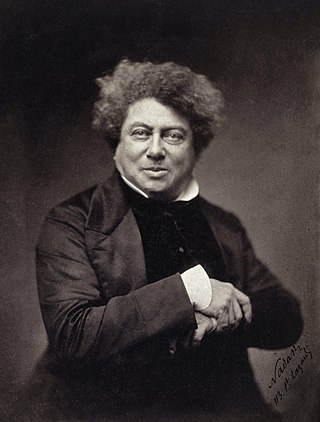
Alexandre Dumas, 24 July 1802 – 5 December 1870), also known as Alexandre Dumas père, was a French novelist and playwright.

William Wilkie Collins was an English novelist and playwright known especially for The Woman in White (1859), a mystery novel and early "sensation novel", and for The Moonstone (1868), which established many of the ground rules of the modern detective novel and is also perhaps the earliest clear example of the police procedural genre.
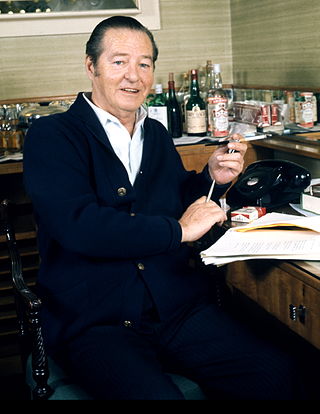
Sir Terence Mervyn Rattigan was a British dramatist and screenwriter. He was one of England's most popular mid-20th-century dramatists. His plays are typically set in an upper-middle-class background. He wrote The Winslow Boy (1946), The Browning Version (1948), The Deep Blue Sea (1952) and Separate Tables (1954), among many others.
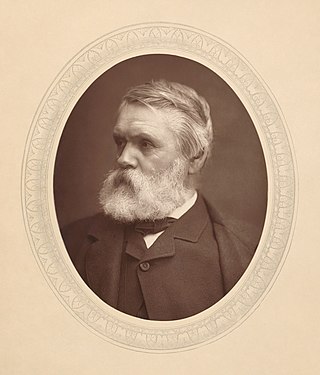
Tom Taylor was an English dramatist, critic, biographer, public servant, and editor of Punch magazine. Taylor had a brief academic career, holding the professorship of English literature and language at University College, London in the 1840s, after which he practised law and became a civil servant. At the same time he became a journalist, most prominently as a contributor to, and eventually editor of Punch.
This article contains information about the literary events and publications of 1854.

Dame Alice Ellen Terry was a leading English actress of the late 19th and early 20th centuries.

Charles John Kean, was an Irish-born English actor and theatre manager, best known for his revivals of Shakespearean plays.
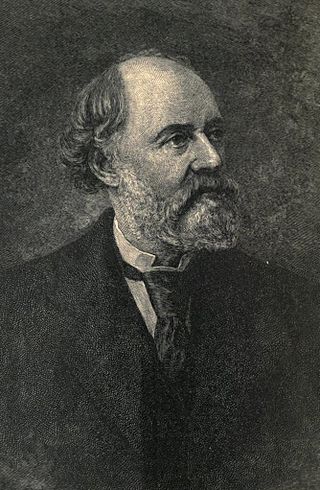
Charles Reade was a British novelist and dramatist, best known for The Cloister and the Hearth.

Francis Henry Durbridge was an English dramatist and author, best known for the creation of the character Paul Temple, the gentlemanly detective who appeared in 16 BBC multi-part radio serials from 1938 onward.
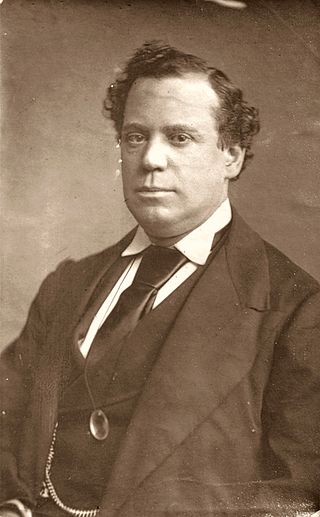
John Lawrence Toole was an English comic actor, actor-manager and theatrical producer. He was famous for his roles in farce and in serio-comic melodramas, in a career that spanned more than four decades, and the first actor to have a West End theatre named after him.

Charles Warner was an English stage actor whose career of over forty years spanned the Victorian and Edwardian eras. Warner performed in a variety of styles, from Shakespeare's plays to comedies, but he was best known for his dramatic roles and the emotional intensity of his performances. His most famous character was the alcoholic 'Coupeau' in Charles Reade's melodrama Drink, a part that the actor performed many times during his career. Warner performed in the principal theatres in London during the period 1864 to 1887. He had a successful tour of Australia and New Zealand from December 1887 to June 1890, after which he returned to England. In 1906 Warner travelled to New York where he appeared on stage in several productions. In February 1909 he committed suicide in his Manhattan hotel room.

John Hollingshead was an English theatrical impresario, journalist and writer during the latter half of the 19th century. After a journalism career, Hollingshead managed the Alhambra Theatre and was later the first manager of the Gaiety Theatre, London. Hollingshead also wrote several books during his life.

Sarah Jane Woolgar was an English stage actress. She had leading roles in plays by notable dramatists of the day, including original productions. She had a long association with the Adelphi Theatre in London.

The Lyons Mail is a 1931 British historical mystery adventure film directed by Arthur Maude and starring John Martin Harvey, Norah Baring, and Ben Webster. It was based on the 1877 play The Lyons Mail by Charles Reade which in turn was based on his 1854 play The Courier of Lyons. The film was also released under the alternative title Courrier de Lyon. It had previously been made into a 1916 silent film The Lyons Mail. The story is based on the Courrier de Lyon case. It was shot at the Twickenham Studios in London. Filmed in 1930, it was to be leading actor John Martin-Harvey's only sound film.
The Lyons Mail is a 1916 British silent film based on the 1877 play The Lyons Mail by Charles Reade, a very popular stage work of the Victorian era. A respectable French gentleman is mistaken for his doppelganger, a notorious highwaymen.
The "Courrier de Lyon" case is a famous French criminal case. It occurred during the French Revolution. During the night of 27 and 28 April 1796, a mail coach was ambushed outside Paris by several men who stole a large sum of money. The stage coach was supposed to go to Lyon from Paris, carrying money for the Army of Italy. Both the driver and the armed guard were brutally killed. A third man on board, travelling under an assumed name, participated in the killing and later vanished.

Masks and Faces is a British historical comedy play written by Charles Reade and Tom Taylor which was first performed in 1852. It features the Irish actress Peg Woffington (1720–1760) as a major character. It proved popular, earning the writers £150. The following year, to capitalize on the play's success Reade wrote a novel Peg Woffington which was also a major hit.

The Lyons Mail is an 1877 drama by Charles Reade based on his play The Courier of Lyons (1854). The new version was written for Henry Irving for performance at the Lyceum Theatre.